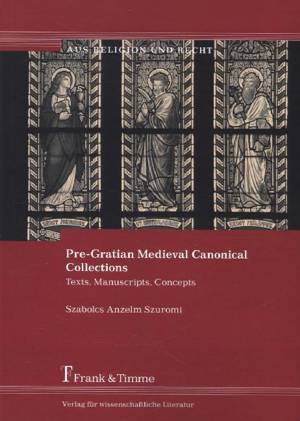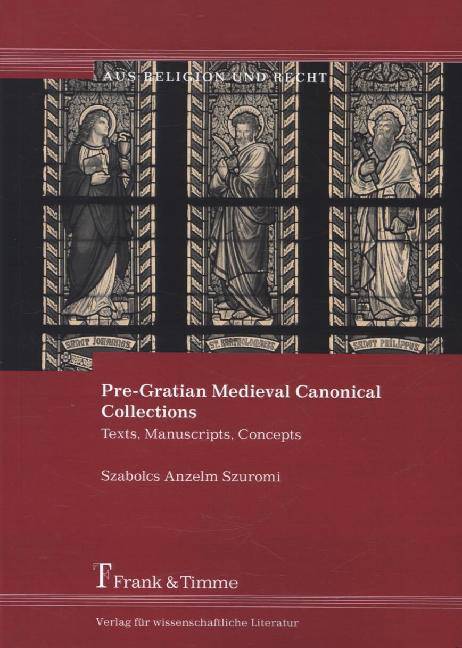
- Afhalen na 1 uur in een winkel met voorraad
- Gratis thuislevering in België vanaf € 30
- Ruim aanbod met 7 miljoen producten
- Afhalen na 1 uur in een winkel met voorraad
- Gratis thuislevering in België vanaf € 30
- Ruim aanbod met 7 miljoen producten
Zoeken
€ 29,45
+ 58 punten
Omschrijving
The canonical collections took their starting point from the 'sacred law' (ius sacrum) characteristic of canon law, since its norms promote the sanctification of the individual persons. This principle was the basis for the compilation of the so-called Pre-Gratian canon law collections, too. In the recent research, there have arisen new stresses on the better understanding of how this textual development of canonical collections had happened prior the "Decretum Gratiani". An original canonical textual witness testifies about the circumstances of its origin, and, indeed, about the physical effects on the text during daily usage. The endeavor to issue the complete canon law did not mean only the composition of the universal canonical norms, but also the gathering of the particular norms, inveterate customs, or theological statements that could set the contents of the ecclesiastical discipline in the proper light.
Specificaties
Betrokkenen
- Auteur(s):
- Uitgeverij:
Inhoud
- Aantal bladzijden:
- 156
- Taal:
- Engels
- Reeks:
- Reeksnummer:
- nr. 18
Eigenschappen
- Productcode (EAN):
- 9783732901081
- Uitvoering:
- Paperback
- Afmetingen:
- 150 mm x 10 mm
- Gewicht:
- 212 g

Alleen bij Standaard Boekhandel
+ 58 punten op je klantenkaart van Standaard Boekhandel
Beoordelingen
We publiceren alleen reviews die voldoen aan de voorwaarden voor reviews. Bekijk onze voorwaarden voor reviews.











